historical materialism

Women Write on the Verge of Historical Change: Last session
Online: Zoom link will be provided to registered participantsDuring this term, the MEP Literature Studies Group will read novels by women writers which explore the intersections of life in their communities, both at home and in the metropoles of Europe, India and the Philippines. These stories will take us to places and introduce us to people facing many of the dilemmas posed during late-stage capitalism, when the looming tipping points begin to collide. Reading and discussing these important writers could very well bring us to a broader sense of time and place. We will discussion Aminatta Forna and Gloria Apostol on December 2, 9, and 16.
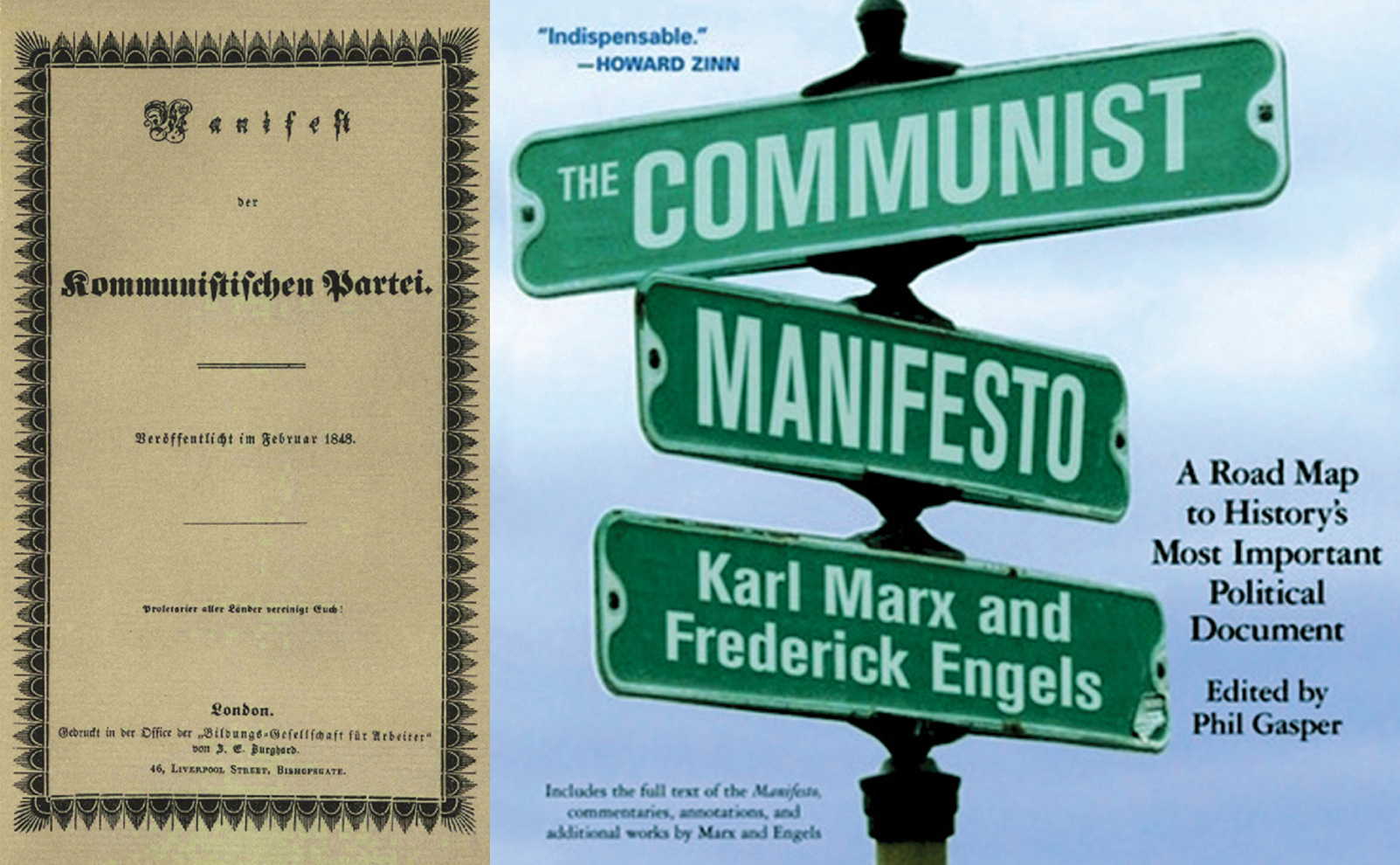
A Guide to The Communist Manifesto with Phil Gasper
Online: Zoom link will be provided to registered participantsIF YOU CANNOT OURCHASE ON OUR SITE, TICKETS ARE AVAILABLE AT EVENTBRITE: https://www.eventbrite.com/e/203494927807
Since Phil produced this edition, the English-reading left has had an authoritative introduction to history’s most important political document, with the full text of The Communist Manifesto by Marx and Engels. This beautifully organized and presented edition of The Communist Manifestois fully annotated, with clear historical references and explication, additional related texts, and a glossary that will bring the text to life for students, as well as the general reader. Since it was first written in 1848, the Manifesto has been translated into more languages than any other modern text. It has been banned, censored, burned, and declared “dead.” But year after year, the text only grows more influential, remaining required reading in courses on philosophy, politics, economics, and history.

Women Write on the Verge of Historical Change: Last session
Online: Zoom link will be provided to registered participantsDuring this term, the MEP Literature Studies Group will read novels by women writers which explore the intersections of life in their communities, both at home and in the metropoles of Europe, India and the Philippines. These stories will take us to places and introduce us to people facing many of the dilemmas posed during late-stage capitalism, when the looming tipping points begin to collide. Reading and discussing these important writers could very well bring us to a broader sense of time and place. We will discussion Aminatta Forna and Gloria Apostol on December 2, 9, and 16.

Women Write on the Verge of Historical Change: Last session
Online: Zoom link will be provided to registered participantsDuring this term, the MEP Literature Studies Group will read novels by women writers which explore the intersections of life in their communities, both at home and in the metropoles of Europe, India and the Philippines. These stories will take us to places and introduce us to people facing many of the dilemmas posed during late-stage capitalism, when the looming tipping points begin to collide. Reading and discussing these important writers could very well bring us to a broader sense of time and place. We will discussion Aminatta Forna and Gloria Apostol on December 2, 9, and 16.
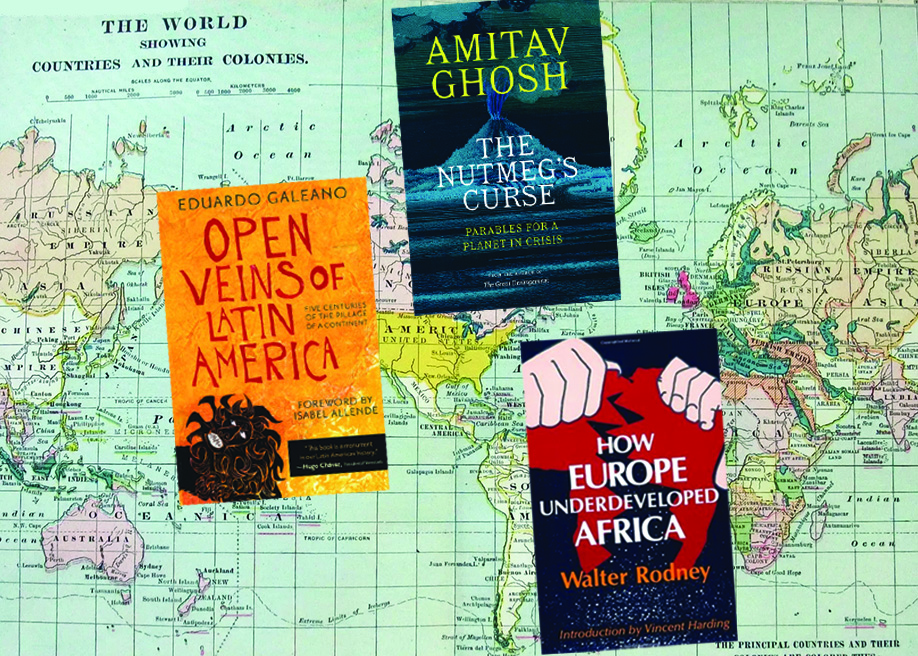
50 Years of Anti-Imperialist Writing: Galeano, Rodney, and Ghosh
Online: Zoom link will be provided to registered participantsA reading group to celebrate and reflect on two classic works of anti-imperialist writing first published fifty years ago but with an ongoing worldwide impact: Eduardo Galeano’s OPEN VEINS OF LATIN AMERICA (1971) and Walter Rodney’s HOW EUROPE UNDERDEVELOPED AFRICA (1972). Extending our scope to Asia and bringing matters up to the present day, we will conclude by reading Amitav Ghosh’s just-published THE NUTMEG’S CURSE: PARABLES FOR A PLANET IN CRISIS.
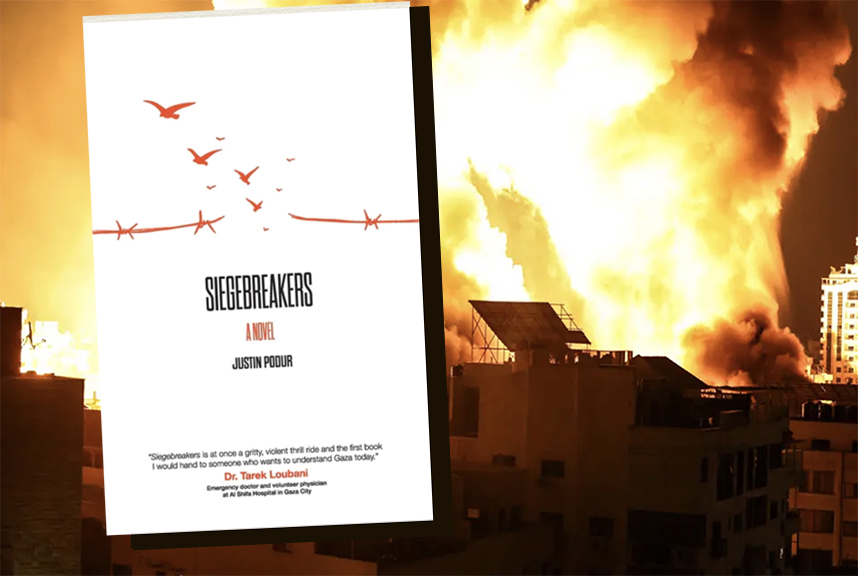
Siegebreakers: A discussion of Justin Podur’s novel set in Gaza
Online: Zoom link will be provided to registered participantsUnder the crushing weight of the siege of Gaza, Laila and Nasser are members of the Palestinian resistance fighting desperately to free their people. Together, they learn of a plan to unite the disparate Palestinian factions and break Israel’s siege. Unknown to them, Ari, a brilliant Israeli spy, has decided that his conscience can no longer allow him to participate in the starvation of Gaza. A double agent whose every move is under mounting suspicion, Ari reaches out to the American contractors who trained him with a secret plan. As they all struggle to break the siege, they face the wrath of the Israeli military machine.
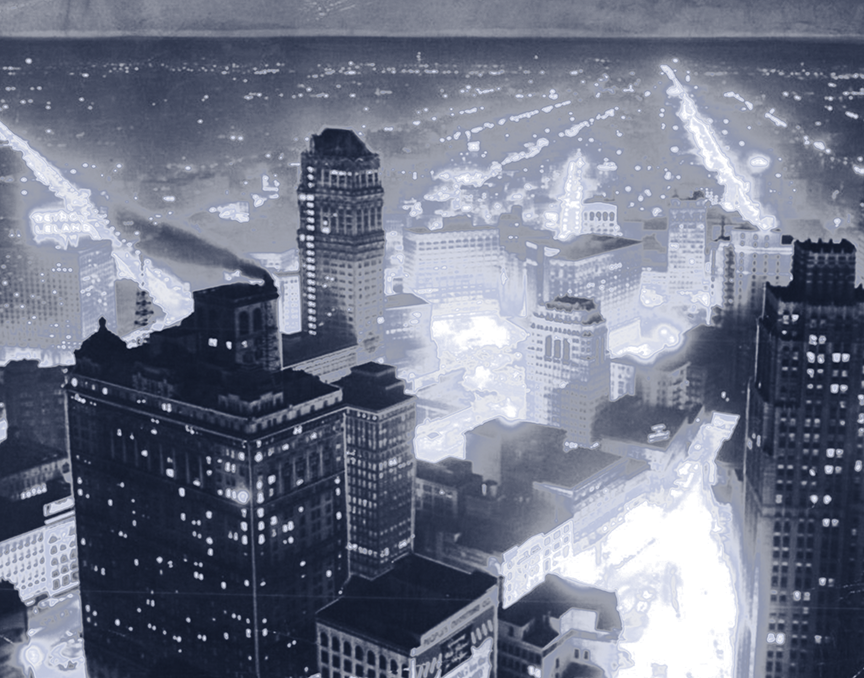
A People’s History of Detroit
Online: Zoom link will be provided to registered participantsMark Jay and Philip Conklin outline the complex sociopolitical dynamics underlying major events in Detroit's past, from the rise of Fordism and the formation of labor unions, to deindustrialization and the city's recent bankruptcy. They demonstrate that Detroit's history is not a tale of two cities—one of wealth and development and another racked by poverty and racial violence; rather it is the story of a single Detroit that operates according to capitalism's mandates.

50 Years of Anti-Imperialist Writing: Galeano, Rodney, and Ghosh
Online: Zoom link will be provided to registered participantsA reading group to celebrate and reflect on two classic works of anti-imperialist writing first published fifty years ago but with an ongoing worldwide impact: Eduardo Galeano’s OPEN VEINS OF LATIN AMERICA (1971) and Walter Rodney’s HOW EUROPE UNDERDEVELOPED AFRICA (1972). Extending our scope to Asia and bringing matters up to the present day, we will conclude by reading Amitav Ghosh’s just-published THE NUTMEG’S CURSE: PARABLES FOR A PLANET IN CRISIS.

50 Years of Anti-Imperialist Writing: Galeano, Rodney, and Ghosh
Online: Zoom link will be provided to registered participantsA reading group to celebrate and reflect on two classic works of anti-imperialist writing first published fifty years ago but with an ongoing worldwide impact: Eduardo Galeano’s OPEN VEINS OF LATIN AMERICA (1971) and Walter Rodney’s HOW EUROPE UNDERDEVELOPED AFRICA (1972). Extending our scope to Asia and bringing matters up to the present day, we will conclude by reading Amitav Ghosh’s just-published THE NUTMEG’S CURSE: PARABLES FOR A PLANET IN CRISIS.

Siegebreakers: A discussion of Justin Podur’s novel set in Gaza
Online: Zoom link will be provided to registered participantsUnder the crushing weight of the siege of Gaza, Laila and Nasser are members of the Palestinian resistance fighting desperately to free their people. Together, they learn of a plan to unite the disparate Palestinian factions and break Israel’s siege. Unknown to them, Ari, a brilliant Israeli spy, has decided that his conscience can no longer allow him to participate in the starvation of Gaza. A double agent whose every move is under mounting suspicion, Ari reaches out to the American contractors who trained him with a secret plan. As they all struggle to break the siege, they face the wrath of the Israeli military machine.
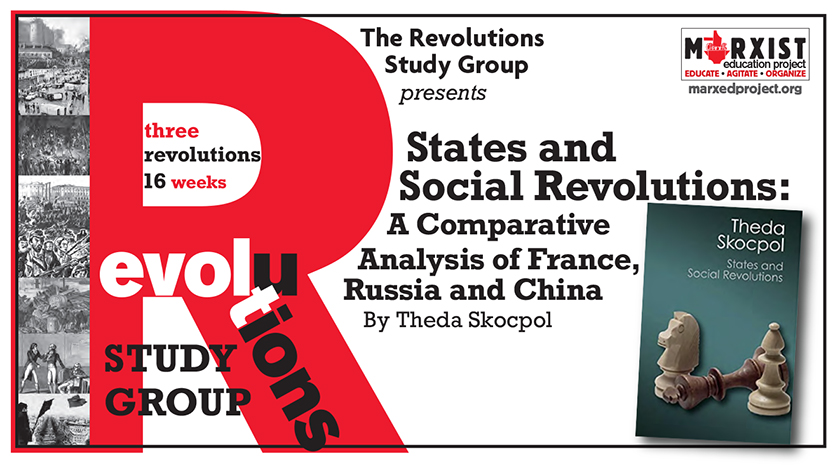
States and Social Revolutions: A Comparative Analysis of France, Russia and China
Online: Zoom link will be provided to registered participantsSkocpol asserts that social revolutions are rapid and basic transformations of a society's state and class structures. She distinguishes this from mere rebellions, which involve a revolt of subordinate classes but may not create structural change, and from political revolutions that may change state structures but not social structures. What is unique about social revolutions, she argues, is that basic changes in social structure and political structure occur in a mutually reinforcing fashion and these changes occur through intense sociopolitical conflict. A convergence of peasant rebellion on one hand and international pressures causing state breakdown on the other hand cause revolutionary social movements.

50 Years of Anti-Imperialist Writing: Galeano, Rodney, and Ghosh
Online: Zoom link will be provided to registered participantsA reading group to celebrate and reflect on two classic works of anti-imperialist writing first published fifty years ago but with an ongoing worldwide impact: Eduardo Galeano’s OPEN VEINS OF LATIN AMERICA (1971) and Walter Rodney’s HOW EUROPE UNDERDEVELOPED AFRICA (1972). Extending our scope to Asia and bringing matters up to the present day, we will conclude by reading Amitav Ghosh’s just-published THE NUTMEG’S CURSE: PARABLES FOR A PLANET IN CRISIS.

50 Years of Anti-Imperialist Writing: Galeano, Rodney, and Ghosh
Online: Zoom link will be provided to registered participantsA reading group to celebrate and reflect on two classic works of anti-imperialist writing first published fifty years ago but with an ongoing worldwide impact: Eduardo Galeano’s OPEN VEINS OF LATIN AMERICA (1971) and Walter Rodney’s HOW EUROPE UNDERDEVELOPED AFRICA (1972). Extending our scope to Asia and bringing matters up to the present day, we will conclude by reading Amitav Ghosh’s just-published THE NUTMEG’S CURSE: PARABLES FOR A PLANET IN CRISIS.
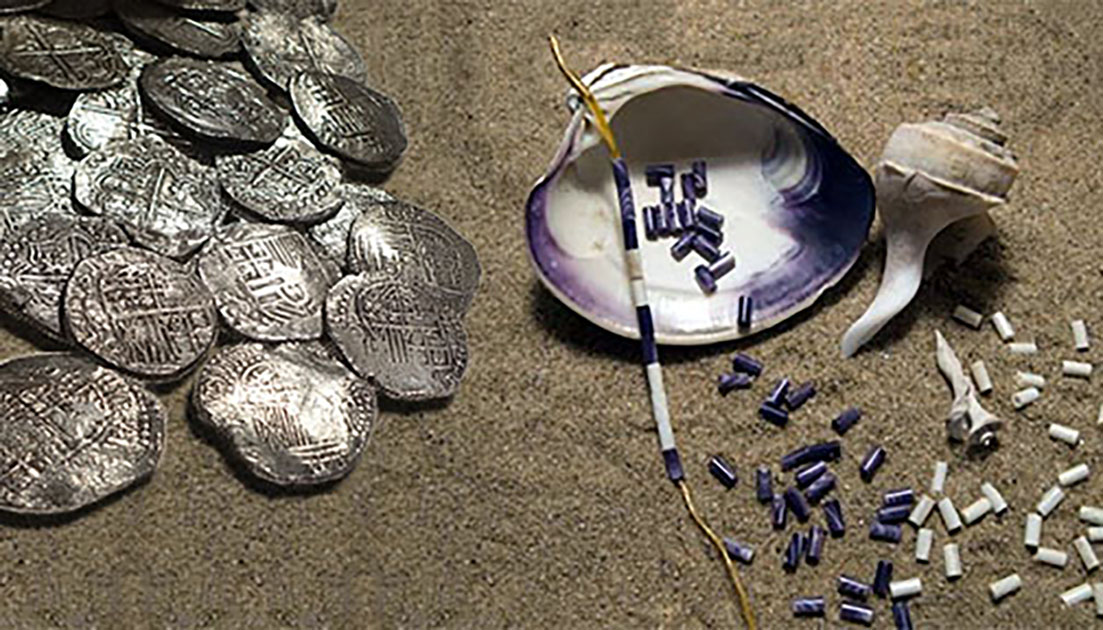
After Wampum, the Evolution of Money in Colonial America
Online: Zoom link will be provided to registered participantsA TALK WITH PETER FAY We will travel back in time to colonial New England and New York to closely examine Marx’s views on money at the periphery of the British empire. Scarcity of British currency forced many commodities toward the role of “universal equivalent”: Indian corn, tobacco, pieces of eight. But it was colonial thirst for luxury commodities like beaver pelts that finally drove an explosive growth in the one money-commodity facilitating that trade: wampum.
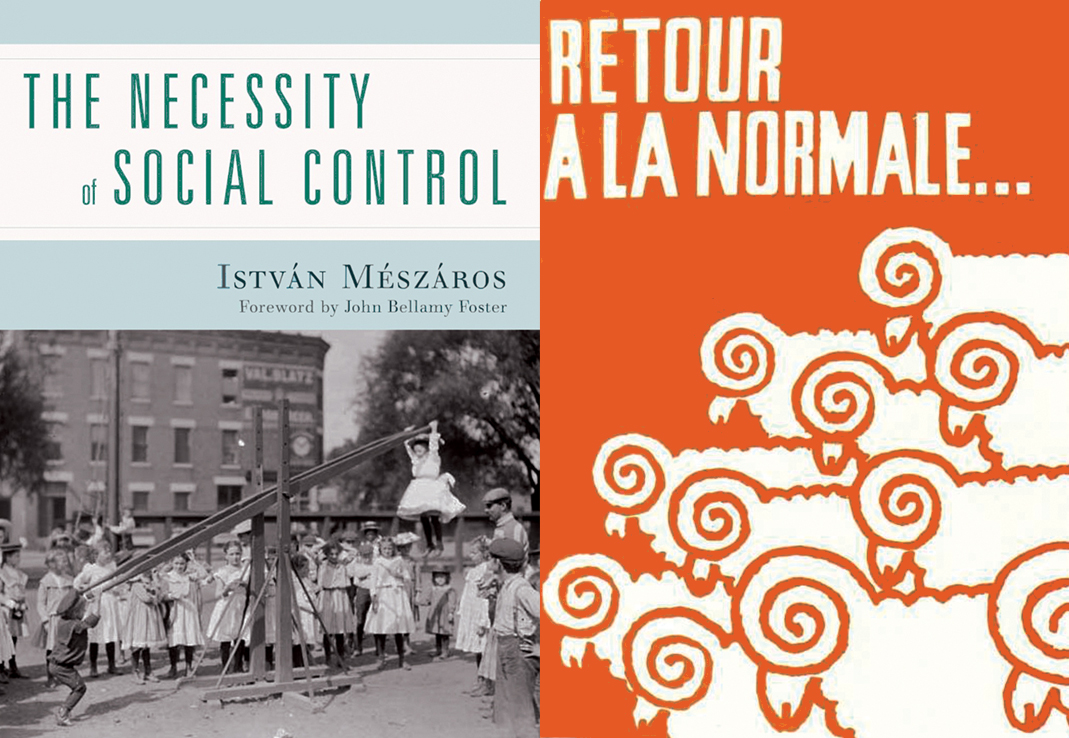
The Necessity of Social Control by István Mészáros
Online: Zoom link will be provided to registered participantsDuring these remaining eight sessions we will do an ongoing close reading of Mészáros’ The Necessity of Social Control (Monthly Review Press). This read in order to better understand the fundamental contradictions of capitalism, the forms of domination and exploitation inherent in its logic, historical efforts to develop an alternative economy and society, and the challenge of sustainable development and substantive equality. We aim to develop our own knowledge of the necessary conditions for emancipation and discuss the relevance of the text for our lives today.
